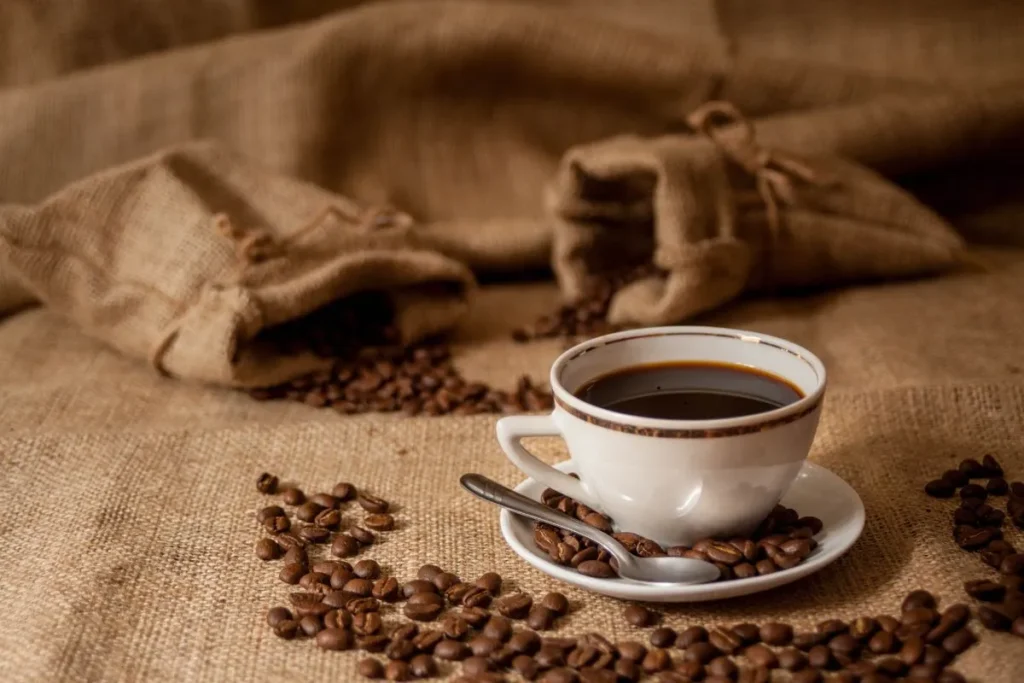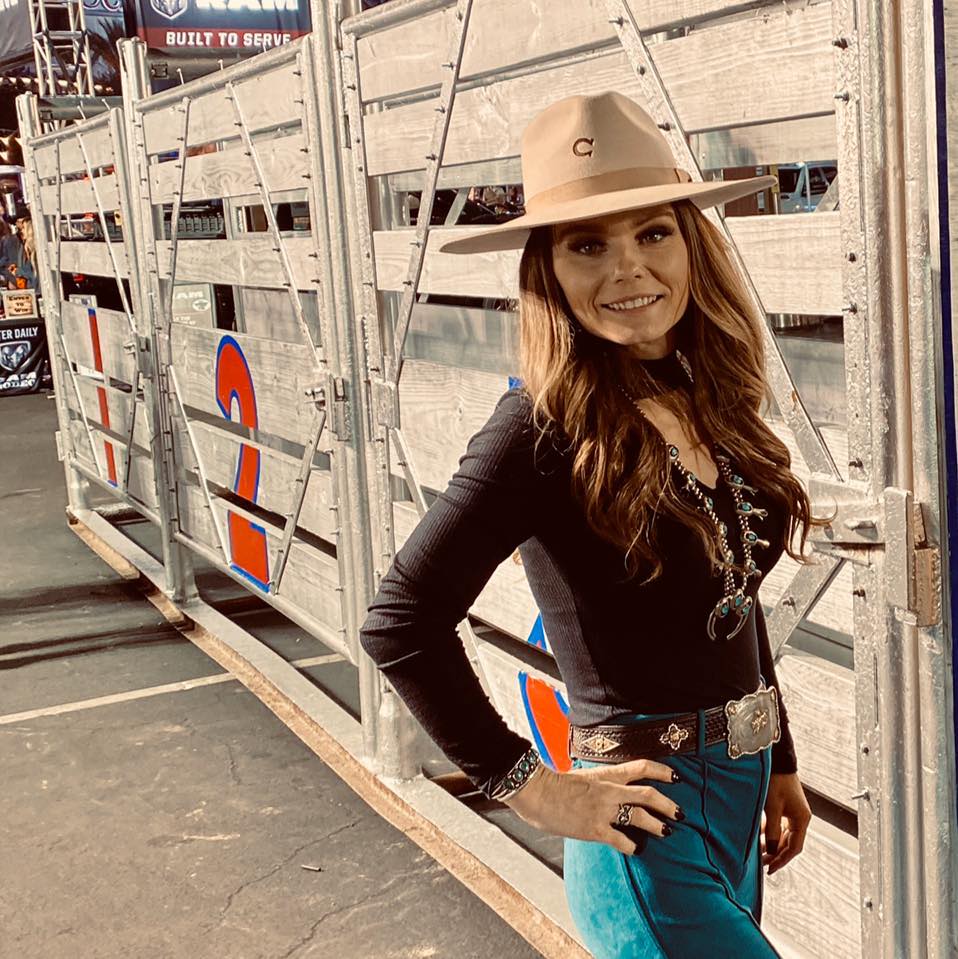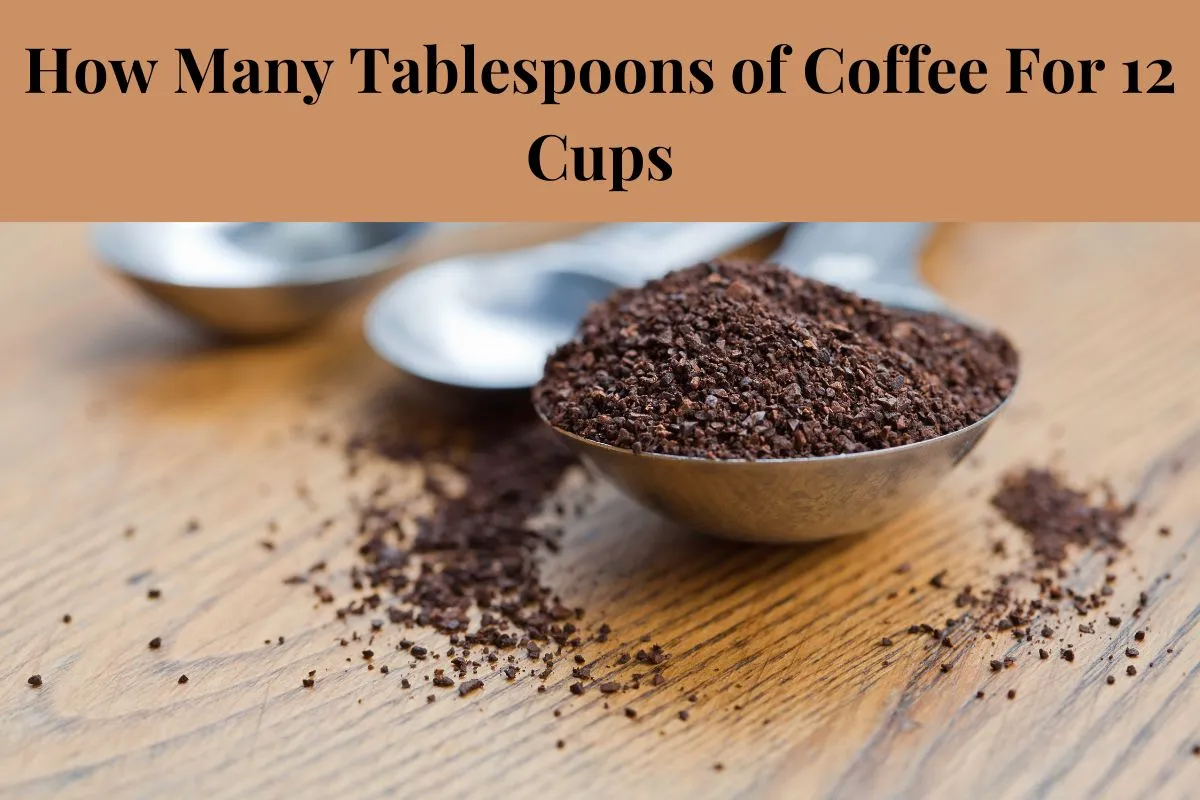In a world of coffee drinks one always seeks for healthy drinks with less amount of caffeine in it so that one can get only the nutritional value of the brewed coffee. Do you ever wonder How Many Tablespoons of Coffee For 12 Cups? It can be challenging to get the ideal coffee-to-water ratio, but it’s necessary to brew a pot of coffee that isn’t overly strong or underpowered.
To make sure every pot you brew is flawless, let’s go into the finer points of coffee measures.
Understanding Standard Coffee Measurement
How Many Tablespoons of Coffee For 12 Cups? Understanding the standard measurement for coffee is crucial for achieving a consistently delicious brew. A standard cup of coffee typically refers to 8 fluid ounces (or about 240 milliliters) of brewed coffee. This measurement serves as a baseline for calculating the ideal coffee-to-water ratio, which influences the flavor and strength of your coffee.
Defining a Standard Cup
In coffee brewing, a standard cup is universally recognized as 8 fluid ounces. This measurement helps maintain consistency across different brewing methods and recipes. When following coffee recipes or using coffee makers, this standard ensures that your brew is neither too strong nor too weak.
Ratio of Coffee to Water
The intensity and flavor profile of your coffee are determined by the ratio of coffee to water. One to two tablespoons of coffee grounds to every six ounces of water is a generally advised ratio. You can change this ratio to your preferred strength or mildness of coffee.
Importance of Accuracy
Invest in a good quality coffee scoop or use measuring spoons to ensure you’re adding the right amount of coffee grounds. Consistency in measurement leads to consistency in taste, allowing you to replicate your favorite brew every time.
Adjusting for Taste
The potency of coffee is personal. Try varying the ratios until you discover the ideal balance that pleases your palette. Feel free to modify them as well. Other factors that affect coffee extraction and flavor include temperature of the water, brewing duration, and grind size.
Why Should One Measure Coffee?

Constantly keep in mind that exact and flawless execution of each step in the coffee-making process is the only way to produce the ideal blend. You must measure your coffee precisely if you want it to be delicious, soothing, and relieve stress.
Put another way, maintaining consistency requires measuring coffee. Measuring coffee is more than just a step in the brewing process—it’s essential for achieving a consistently great cup of coffee.
Consistency in Flavor
Consistency in measurement leads to consistency in flavor. Whether you prefer a bold and strong brew or a milder taste, precise measurements help you achieve the desired flavor profile consistently.
Balance of Coffee-to-Water Ratio
The strength and flavor of your coffee are greatly influenced by the proportion of coffee grinds to water. Measuring allows you to control this ratio accurately. A weak brew can come from using too little coffee, and a bitter taste can be produced by using too much. Finding the right balance enhances the overall quality of your coffee.
Adjustability to Preferences
Measuring coffee gives you the flexibility to adjust according to your taste preferences. Conversely, for a milder flavor, you can use fewer grounds. Measuring empowers you to customize your coffee experience to suit your liking.
Brewing Consistency
Consistent measurement is key to mastering your brewing method. Whether you roast using a pour-over, French press, or drip coffee equipment, exact measurements guarantee that you always get the same delicious cup. This reliability allows you to refine and perfect your brewing technique over time.
Determining Coffee Measurement for 12 Cups
When brewing coffee for a larger group or a pot that serves approximately 12 cups, it’s essential to calculate the right amount of coffee grounds to achieve the perfect brew. Here’s how you can determine the measurement:
There are two main ways to measure coffee for a 12-cup pot:
Tablespoons
The most popular approach is this one. Use one spoonful of coffee for every six ounces of water as a general guideline. Given that a typical cup of coffee is six ounces, you would use twenty-four tablespoons of coffee to make twelve cups. This is a starting point, and you can adjust the amount to taste (more for stronger coffee, less for milder).
Grams
For a more precise measurement, you can use a coffee-to-water ratio. One gram of coffee for every sixteen grams of water is a typical ratio of 1:16. To make 12 cups (around 96 ounces or 2721 grams of water), you would need about 170 grams of coffee.
Tips For Making Coffee For 12 Cups
Brewing coffee for a group of 12 requires careful planning and execution to ensure everyone gets a perfect cup.
- Make use of freshly ground coffee: Grind the coffee beans right before brewing, starting with fresh ones. Your coffee will smell and taste its best thanks to this.
- Measure Coffee Accurately: Use a coffee scoop or tablespoons to measure the coffee grounds accurately. As a general guide, aim for about 1.5 tablespoons of coffee per standard cup (8 ounces).
- Calculate Water Amount: For 12 cups, you’ll need approximately 96 fluid ounces of water. Use filtered water for the best taste.
- Pre-Heat Your Coffee Maker: Before brewing, preheat your coffee maker or pot with hot water. This helps maintain the coffee’s temperature after brewing.
- Adjust Coffee Strength: Adjust the amount of coffee grounds based on your preference for stronger or milder coffee. You can slightly increase or decrease the amount to suit your taste.
- Monitor Brewing Time: Pay attention to the brewing time recommended for your coffee maker or brewing method. Weak coffee is the result of under-extraction, whereas bitterness can arise from excessive extraction.
- Serve Immediately: Once brewed, serve the coffee promptly to enjoy it at its freshest and hottest. Its flavor may be impacted if it is left on a warm dish for an extended period of time.
- Offer Variety: Consider offering different types of coffee if possible, such as a decaffeinated option or flavored varieties, to cater to different preferences.
- Clean Your Equipment: After brewing, clean your coffee maker or pot thoroughly to prevent residual coffee oils from affecting the flavor of future batches.
Brewing coffee for a group of 12 can be a rewarding experience with the right preparation and attention to detail. By following these tips, you can ensure that everyone enjoys a delicious cup of coffee tailored to their preferences.
Conclusion
Mastering the art of coffee measurement is fundamental to brewing a perfect cup every time. You may adjust the experience of drinking coffee to steadily suit your taste preferences by knowing how the ratio of coffee to water, grind size, and brewing technique relate to one another. The brewed coffee that you get after all the process should be great for your health benefits.
FAQs
Q1: How many tablespoons of coffee for strong coffee?
Increase the amount of coffee used per cup for a stronger brew. For every six ounces of water, use two tablespoons of coffee.
Q2: Can I use a coffee scoop instead of tablespoons?
Yes, a standard coffee scoop typically measures around 2 tablespoons of coffee, which is equivalent to a standard coffee tablespoon.
Q3: In the absence of a scale, how do I measure coffee?
You can use standard measuring spoons or a coffee scoop, ensuring you level off the grounds for accuracy.

Rossi Glover, the passionate Owner of Grand Lake Coffee, infuses every cup with her love for coffee and dedication to quality. With an extensive background in the art and science of coffee, Rossi is not just a connoisseur but a storyteller, sharing the intricate tales behind each brew.

